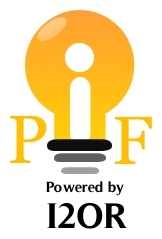Genetic Heterogeneity of 72 Patients With Mucopolysaccharidosis In Tunisia |
| ( Volume 1 Issue 3,July 2015 ) OPEN ACCESS |
| Author(s): |
Latifa Chkioua, Chaker Aloui, Sandrine Laradi, Oussama Grissa, Hadhami Ben Turkia, Souad Ouesleti, Salima Ferchichi, Abdelhedi Miled, Roseline Froissart |
| Abstract: |
|
The mucopolysaccharidoses (MPS) are a group of lysosomal storage diseases, presenting with a progressive multisystem disorder, with extreme clinical heterogeneity. The purpose of this study was to investigate six genes involved in different types of mucopolysaccharidosis (MPS), a group of lysosomal storage diseases. Mutation screening was performed for a total of 72 MPS Tunisian patients with MPS I (n=43), MPS II (n=5), MPS IIIA (n=7), MPS IIIB (n=3), MPS IIIC (n=2), or MPS IVA (n=12). The methodological approaches included genomic PCR sequencing, RT-PCR for MPS IVA and tetra-primer ARMS PCR assay for MPSI. The present study revealed one novel splice site mutation in one MPSI patient, in addition to the 11 previously Tunisian mutations reported for the first time by our research team: three in the IDUA gene (MPS I) including two missense, one nonsense; four in the SGSH gene (MPS IIIA) including a mutation involving the start codon, one small duplication, one small deletion and a large deletion of exons 1 to 5; two in the NAGLU gene (MPS IIIB) including one missense mutation and one nonsense mutation; two in the HGSNAT gene (MPS IIIC) including one missense and one nonsense mutation, two in the GALNS gene including one missense and one splicing mutation. These data demonstrate the remarkable mutational heterogeneity characterizing all types of MPS tested, although high consanguinity rate in the Tunisian population. We report biochemical and molecular aspects of these patients to prevent (e.g. genetic counseling, prenatal diagnosis) the recurrence of affected child since these diseases are still not rare in our area and as specific therapy is not available in our country.
|
| Paper Statistics: |
| Cite this Article: |
| Click here to get all Styles of Citation using DOI of the article. |
 Click Here for
Click Here for Track Your Paper

 Call for Paper
Call for Paper
